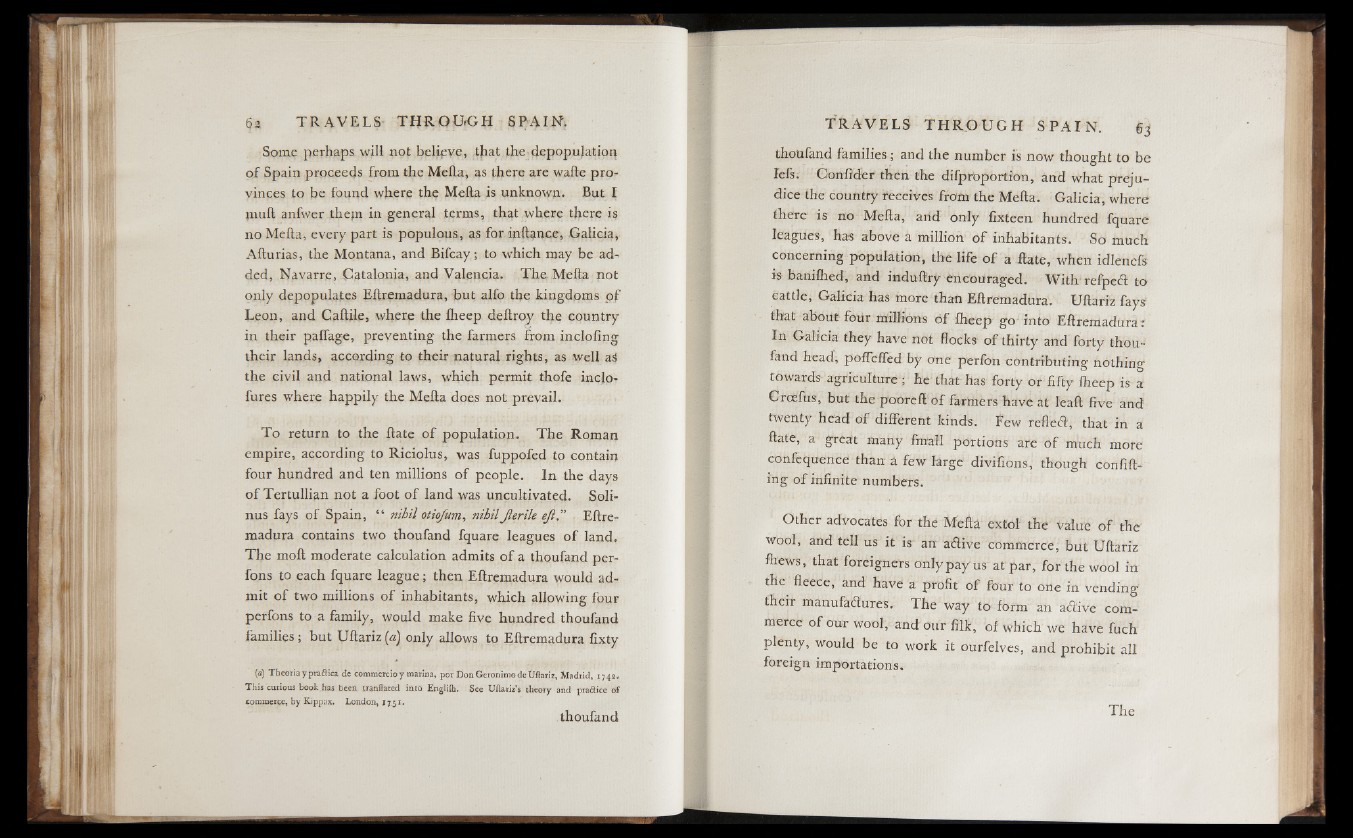
Some perhaps will not believe, that the depopulation
of Spain proceeds from the Meila, as there are wafte provinces
to be found where the Mefta is unknown. But I
muft anfwer thefn in general terms, that where there is
no Mefta, every part is populous,, as for inftance, Galicia,
Afturias, the Montana, and Bifcay; to which may be added,
Navarre, Catalonia, and Valencia. The Mefta not
only depopulates Eftremadura, but alfo the kingdoms p f
Leon, and Caftile, where the lheep deftroy the country
in their paffage, preventing the farmers from incloiing
their lands, according to their natural rights, as well aS
the civil and national laws, which permit thofe inclo-
fures where happily the Mefta does not prevail.
To return to the ftate o f population. The Roman
empire, according to Riciolus, was fuppofed to contain
four hundred and ten millions o f people. In the days
o f Tertullian not a foot of land was uncultivated. Soli-
nus fays of Spain, “ nihil otiofum, nihil Jlerile ejl,” , Eftremadura
contains two thoufand fquare leagues o f land.
The moft moderate calculation admits o f a thoufand per-
fons to each fquare league; then Eftremadura would admit
o f two millions o f inhabitants, which allowing four
perfons to a family, would make five hundred thoufand
families; but Uftariz (a) only allows to Eftremadura fixty
(3 ) TheoriaypraiHca de commercioy marina, por DonGeronimo de Uftariz, Madrid, 1742.
This curious book has been tranflated into Englilh. See Uftariz’s theory and prafiice of
commerce, by Kippax. London, 1771.
thoufand
thoufand families; and the number is now thought to be
lefs. Confider then the difproportion, and what prejudice
the country receives from the Mefta. Galicia, where
there is no Mefta, and only fixteen hundred fquare
leagues, has above a million o f inhabitants. So much
concerning population, the life o f a Rate, when idlenefs
is banilhed, and induftry encouraged. With refpect to
cattle, Galicia has more than Eftremadura. Uftariz fays'
that about four millions of lheep go into Eftremadura;
In Galicia they have not flocks o f thirty and forty thoufand
head; pofiefFed by one perfon contributing nothing
towards agriculture ; he that has forty or fifty lheep is a
Croefus, but the pooreft of farmers have at leaft five and
twenty head of different kinds. Few reflecft, that in a
ftate, a great many fmail portions are o f much more
confequence than a few large divifions, though confuting
of infinite numbers.
Other advocates for the Mefta extol the Value o f the
wool, and tell us it is an atftive commerce, but Uftariz
fhews, that foreigners only pay us at par, for the wool in
the fleece, and have a profit o f four to orte in vending
fheit manufactures. The way to form an active commerce
o f our wool, and our filk, of which we have fuch
plenty, would be to work it ourfelves, and prohibit all
foreign importations.
The